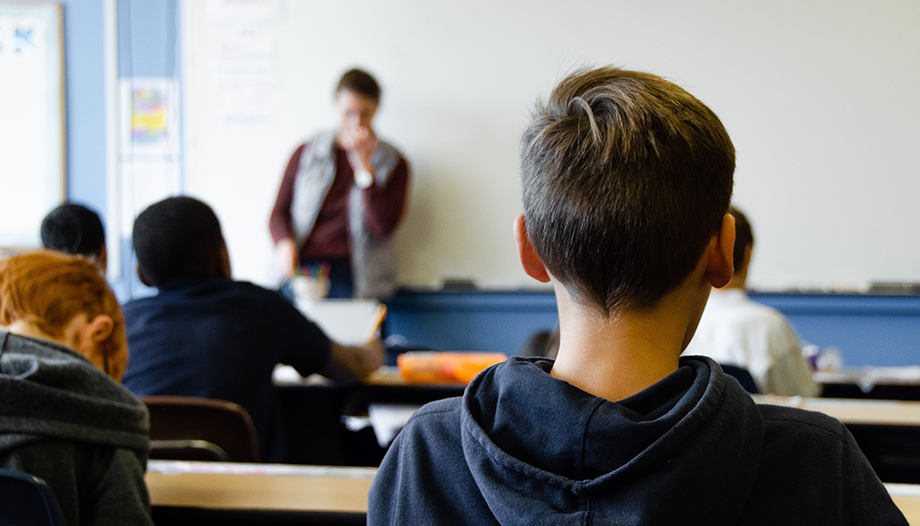The infringement of fundamental rights and the freedoms of parents and school creators are the core issues on which platforms such as Más Plurales are basing their complaints and appeals before European institutions, with reference to the Treaty on the Functioning of the European Union and other Community legislation.
This was stated by Jesús Muñoz de Priego Alvear, lawyer and legal advisor to numerous institutions, spokesperson and coordinator of "enLibertad"and spokesperson for the platform More PluralesThe new Organic Law for the Modification of the LOE (Lomloe), under the title of "The new Organic Law for the Modification of the LOE (Lomloe) What does the Celaá law oblige us to do?
Muñoz de Priego cited the European Charter of Human Rights and commented on the Más Plurales complaint to the European Commission, which is asking Brussels to initiate the infringement action in which the Platform wants to be considered an interested party.
As an entity that represents the vast majority of social initiative centers or subsidized centers, the platform considers that the Lomloe puts at serious risk of violation of fundamental rights recognized in EU regulations and the Spanish Constitution.
Specifically, it concerns the freedom of education established in Article 27 of the Spanish Constitution, by making subsidized education subsidiary to public education; the freedom to create centers by limiting the possibility of opening new centers with their own ideology, and thus the pluralism of the educational system (Articles 14.3 and 16 of the European Charter of Fundamental Rights); and the right of parents to choose the education they want for their children in accordance with their convictions.
Social demand is eliminated
In his speech, the speaker emphasized that it is going to "towards a monopoly of a single public school". to "disappear" the concept of "social demand" (request of parents and families) as a criterion to be taken into account in the programming of the supply of school places supported with public funds. As of this law, this programming will be decided by the public administration, without taking into account the will of the families (art. 14.3 of the European Charter of Fundamental Rights).
"The administration wants to distribute students among centers as if they were playing cards", with a criterion of "strict zoning", which some international organizations have recognized as leading to the implementation of "educational ghettos", added Muñoz de Priego. Those most affected by "unilateral planning by the Administration". will be "the families with the least economic resources, the poorest"because those with greater resources have a choice.
The Lomloe "it is the worst education law of democracy", said the spokesman for Más PluralesThe law, "because of the moment chosen, in the middle of the pandemic, because of the scarce parliamentary debate and the lack of social debate, and because of its content. Society demanded a State pact on education, and a law has emerged without consensus, because the government has not sought dialogue".
A new right to public education
"The new law deepens the principles of the LOE, which failed." added the jurist, "encourages the closure of units with social demand, concerted" y "a new right, the right to public education, is invented.". That is to say, "as opposed to the right to education, which is the only one constitutionally recognized, and which implies universal access to education, and which is guaranteed by the public authorities with free places regardless of the ownership of the center where these places are located, whether public or social initiative, subsidized, [...], the right to education is only guaranteed in places in public centers".
This seems somewhat theoretical, "has in the end an immediate practical effect"said Jesús Muñoz de Priego. "Thus, the Lomloe, in Article 15, based on the concept of the right to public education, establishes that in 0-3 years, what the Administration must guarantee is that all students who wish to attend school must be able to do so in a public place; and Article 109 states that in areas of new population, what must be guaranteed is the existence of sufficient public places to meet the total demand. Article 109.5 even makes an express reference to the fact that public units will be increased, in a discretionary manner by the Administration".
"This is going to provoke that in certain autonomous communities new public centers will be artificially created with new public places, places that are not necessary and that nobody has asked for", said the spokesperson for Más Plurales. "And as a consequence of this regulation of the Lomloe, that will cause the reduction of more concerted units of social demand to fill with students those newly created public classrooms, which are not necessary and that no one has asked for-".
Religion is postponed
Another analyzed element of the new law Celaá was the subject of Religion. "The subject is further postponed, which in practice is left out of the educational system. Because it does not meet the requirements of any other".. "The subject of Religion is not catechesis, it is a subject within the educational system. If the references of what any other subject entails are eliminated, in practice, it is being taken out of the system."said the jurist.
The course has already "a huge ordeal"said Muñoz de Priego at the CARF meeting, "and it is foreseeable to know in which situation it will be placed, either sooner or later." In his opinion, "Once again, three million families who want to choose the subject of Religion are asked to be heroic, when it will not count for anything, neither for scholarships nor for promotion, for example.".
The jurist stressed that "the pact between the Spanish State and the Holy See establishes that the subject of Religion must be treated as a fundamental subject. Can you imagine this treatment with Mathematics, for example?".












